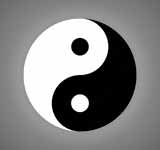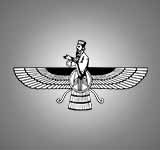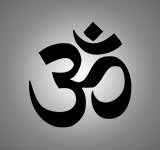1. Islam

Islam means peace. Islam is a monotheistic religion derived from apostolic tradition. The last apostle began in 7th century Arabia, while Muslims believe that it exists from the creation of the universe. Islam is based on the teachings of the Qur'an, the incarnation book of Allah, the last Rasul of Allah, passed on to humans, and contains the Hadith, Sirat un-Nabi and the Shari'a scripture Quran. The religious places of Islam are called mosques. Islam is the second largest religion in the world. According to Islam, the Quran is the last religious book provided by God to man. Islam considers only one Allah, whom they call God (Khuda). In Islam, Allah is considered beyond human comprehension. According to Muslims, Allah is unique - there is no one like Allah. A unique concept of Allah has been emphasized in Islam and it is also believed that it is beyond human to describe it completely. According to Islam, from time to time, God made a person his messenger for the guidance of humans on earth. All Muslims accept the legitimacy of all the prophets sent by God and Muslims consider Muhammad Sallalahu Alaihi va Sallam as the last prophet of God.
2. Christianity

Christianity is a monotheistic religion derived from ancient Jewish tradition. It began in Palestine in the first century AD, whose followers are called Christians. This religion is based on the teachings of Jesus Christ. There are mainly three communities among Christians, Catholic, Protestant and Orthodox, and their scripture is the Bible. The religious place of Christians is called a church. Most people in the world believe in Christianity. According to Christianity, idolatry, murder, Fornication and vain trauma to anyone is a sin. This religion spread like a revolution till the 4th century. Christians are monotheists, but they perceive God as a trinity - God the Father, their son Jesus Christ and the Holy Spirit. The Supreme Father is the creator and ruler of this world. Jesus Christ himself is the son of God. Who came to the world in incarnation to save all humans from sin. The Holy Spirit is the third personality of the Trinity God, under whose influence a person realizes God within himself.
3. Taoism

Taoism is a basic philosophy of China. It began in the 4th century BC and its sources are the texts Tao-te-ching and Zhuang-zi, composed by the philosopher Laozi. Originally, the Tao was not a religion but a philosophy and a lifestyle, and later, after Buddhism reached China, the Tao incorporated many beliefs of Buddhists and progressed as the Vajrayana community. Many Chinese believe both Buddhist and Tao religions together. According to a survey, 50% to 80% of the population in China believe in Buddhism. It can have 50% Buddhist and 30% Tao population. The supreme goddess and deity is Yin and Yang. Rituals are performed to worship the deities and animals and other things are sacrificed. Most things emanating from China, such as Chinese cuisine, Chinese chemistry, Chinese kung-fu, feng-shui, Chinese medicine, etc. have been related to Taoism in one way or the other. Because Taoism is not an organized religion, it is difficult to find the number of its followers.
4. Judaism

Judaism is one of the oldest religions in the world, and is considered the world's first monotheistic religion. It is not just a religion but a whole way of life which is the religion of Israel and Hebrew speakers. In this religion, the belief of God and the Prophet is predominant. Tanakh, Talmud and Midrash are prominent in their religious texts. The Jews believe that it exists from the creation itself. The religious place of the Jews is called the Temple and the place of prayer is called the Synagogue. This tradition and ideology is the basis of Christianity and Islam. Therefore it is also called Ibrahimi religion. According to Jewish beliefs, God is one and not an incarnation or form, but he sends his message to the messenger. Christianity and Islam religion are also based on these beliefs, but in Islam there is more emphasis on the formlessness of God. According to the Jews Moses got the message of God to spread in the world in written and oral forms. The Lord ordered the people of Israel to pray to one God.
5. Sikhism

Sikhism (Khalsa or Sikhmat) was started in the 15th century by Guru Nanak Dev. The religious texts of Sikhs are Shri Adi Granth or Guru Granth Sahib and Dasam Granth. In Sikhism, their religious place is called Gurdwara. The ten Satgurus of Sikhs are generally considered, but the Sikh religious text contains thirty bhagats, including six gurus, whose Sikhs are considered important to follow the Sikh path. Born in Punjab in 1469 AD, Nanak Dev discovered Gurmat and spread the teachings of Gurmat all over the country. The Sikhs consider him their first guru. The 9 gurus preached Gurmat. The 10th Guru Gobind Singh Ji preached to follow the teachings of the Gyan Guru Granth Sahib. Its religious traditions were finalized by Guru Gobind Singh on 30 March 1699. People of different castes took initiation from Sikh Gurus and decorated the Khalsa Panth. The Sikhs believe in a one God, whom they call 'Ek-Onkar'. They believe that God is Immortal and formless. Sikhism has its own sacred and unique place in India. The first Sikh Guru, Guru Nanak Dev is the originator of Sikhism.
6. Buddhism

Buddhism is the knowledge religion and philosophy derived from the Shramana tradition of India. Buddhism was founded by Mahatma Buddha in the 6th century BC. Mahatma Buddha was born in Lumbini in 563 BC in the house of King Shuddhodhana of the Ikshvaku dynasty Kshatriya Shakya clan. In the next five centuries of his Mahaparinirvana, Buddhism spread throughout the Indian subcontinent and in the next two thousand years also spread across the central, eastern and southeastern Jambu continent. The major sects in Buddhism are: Hinayana, Theravada, Mahayana, Vajrayana and Navayana, but all Buddhist sects believe in the principles of Buddha. Tripitaka (Tipitaka) is the main text of Buddhism. It is written in Pali language. This book is the biggest effort to formulate the teachings given by the Buddha after the consecration of the Buddha. The Sangh has a great place in Buddhism. In this religion, Buddha, Dhamm and Sangh are called 'Triratna'. Today more than 8 countries in the world (also republican states) have Buddhism as a majority or major religion.
7. Zoroastrianism

Zoroastrianism was the Persian religion. This is based on a scripture called Zanda Avesta. Its founder is Mahatma Zarathushtra, hence it is also called Zarathushtri Dharma. Historically, Zoroastrianism began in the 6th century BC. Now only a few parts of Zand Avesta are available. Its oldest parts can be from the period immediately after the Rigveda. Its language is Avestan language, which is very much similar to Sanskrit language. The teaching of Zoroastrianism is: Humata, Huxta, Huvarshta, which in Sanskrit was Sumat, Sukta, Suvarna (Good Thoughts, Good Words, Good Deeds). Zoroastrians believe in one God called Ahura Mazda (Sanskrit: Asura Medha) (Hormazd). Its description is very similar to the Vedic deity Varuna. Agni (fire) is considered like a son of God and very holy. Through that, Ahura Mazda is worshipped. Parsi temples are called Atish Behram.
8. Hinduism

Hinduism is a religion (or, way of life) whose followers are mostly in India, Nepal and Mauritius. It is considered to be the oldest religion in the world. It is also called 'Vedic Sanatan Varnashrama Dharma' which means that its origin is even earlier than human origin. Scholars consider Hinduism to be a blend of different cultures and traditions of India, which has no founder. This religion has many different ways of worship, religion, sect and philosophy. It is the third largest religion in the world based on the number of followers. Most of its worshipers are in India by number and Nepal by percentage. Although many deities are worshiped in it, it is in fact a monotheistic religion. It is also called Sanatana Dharma or Vedic Religion. The formal name of this religion in Indonesia is "Hindu Agam". Sanatana Dharma is one of the oldest religions on Earth. However, many scholars have many opinions about its history. Hinduism is not only a religion or a community but a way of living.
9. Jainism

Jainism is one of the oldest philosophies or religions in the world. It originated from the Shraman tradition of India and its originators are 24 Tirthankaras, of which the first Tirthankara is Lord Rishabhdev (Adinath) and the last and prominent Mahavir Swami. Many references to the very antiquity of Jainism are abundant in literature and especially in mythological literature. Shwetambara and Digambara are the two sects of Jainism, and their scriptures are 'Samayasara' and 'Tattvarthasutra' Sutras. The religious places of the Jains are called the Jinalaya or temple. Non-violence is the basic principle of Jainism and it is strictly followed. This can be seen specifically in the Catering Ethics Rule. According to Jain texts, there is neither a doer of the world nor someone who gives happiness and sorrow to the living beings. According to their own Karma, living beings get happiness and sorrow.
10. Korean shamanism

Korean shamanism is the traditional religion of Korea and Koreans. It has approximately 5 to 15 million followers. In the contemporary Korean language, the priest-shaman mu is known as mudang if she is a woman or baksu if he is a man, although other names are also used. The term mu (shaman) is synonymous with the Chinese term wu, which defines both priests and priestesses. The role of mudang is to act as an intermediary between the world of spirits or gods, and the human, through gut (rituals) seeking to solve problems in the patterns of development of human life.
11. Shinto

Shinto religion is one of the oldest religions in the world. It is the basic religion of Japan, and there are many deities who are called kami. Every Kami represents some natural power. It has a heavily reconciled with Buddhism and the Zen religion started by combining many theories of Buddhism. Historically it was recognized in the 6th century. Earlier Shinto religion used to be the religion of Japan and in this the King of Japan was considered as the head but after the Second World War it stopped doing so. Samurai believe in this religion.
12. Bahá'í

The Bahá'í Faith is an independent religion established by Bahá'u'lláh in the city of Baghdad, Iraq. It emphasizes monotheism and the sole cornerstone of various religions and creeds around the world. Followers of this religion consider Baha'u'llah to be a return to the earlier incarnations of Buddha, Krishna, Isa, Moses, Jarthustra, Muhammad, etc. Kitáb-i-Aqdas is the main religious text of the Bahá'ís. According to Bahá'í schools, all human religions in the world have the same origin. According to this, many people introduced new religions to bring the message of God to humans which was suitable for the time and environment. Baha'u'llah is considered as the Kalki avatar who has come to unite the whole world and whose purpose and message is "All earth is one country and mankind is its citizen". God is one and from time to time, he sends their messengers to Earth to educate mankind. Baha'i followers do not accept any prejudices of caste, religion, language, color, class etc.
13. Animism

Animism is the philosophical, religious or spiritual view that the soul is not only in humans but also in all animals, flora, rocks, natural phenomena (lightning, rain etc.). Going further than this, sometimes words, names, analogies, metaphors etc. talk about the existence of the soul. The philosophy of animism is found mainly in tribal societies, but it is also found in Shinto and some sects of Hindus. In fact, even in unconscious things like trees, planets, satellites etc., people who believe in the power of soul are still found in many countries of the world. Those who often worship not only the spirits, especially their dead ancestors, but also such souls, which they do not understand as related to any particular body or object.

